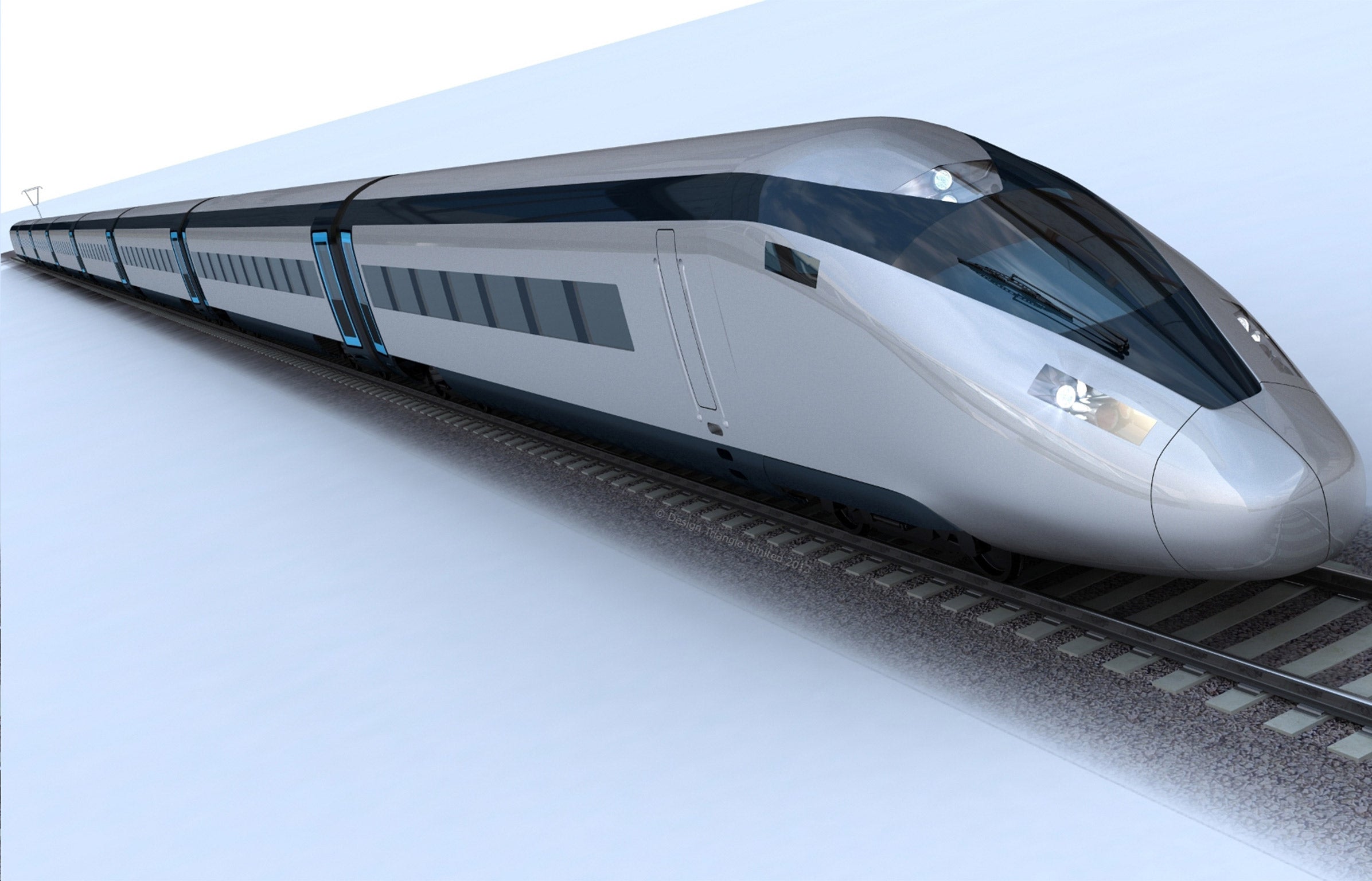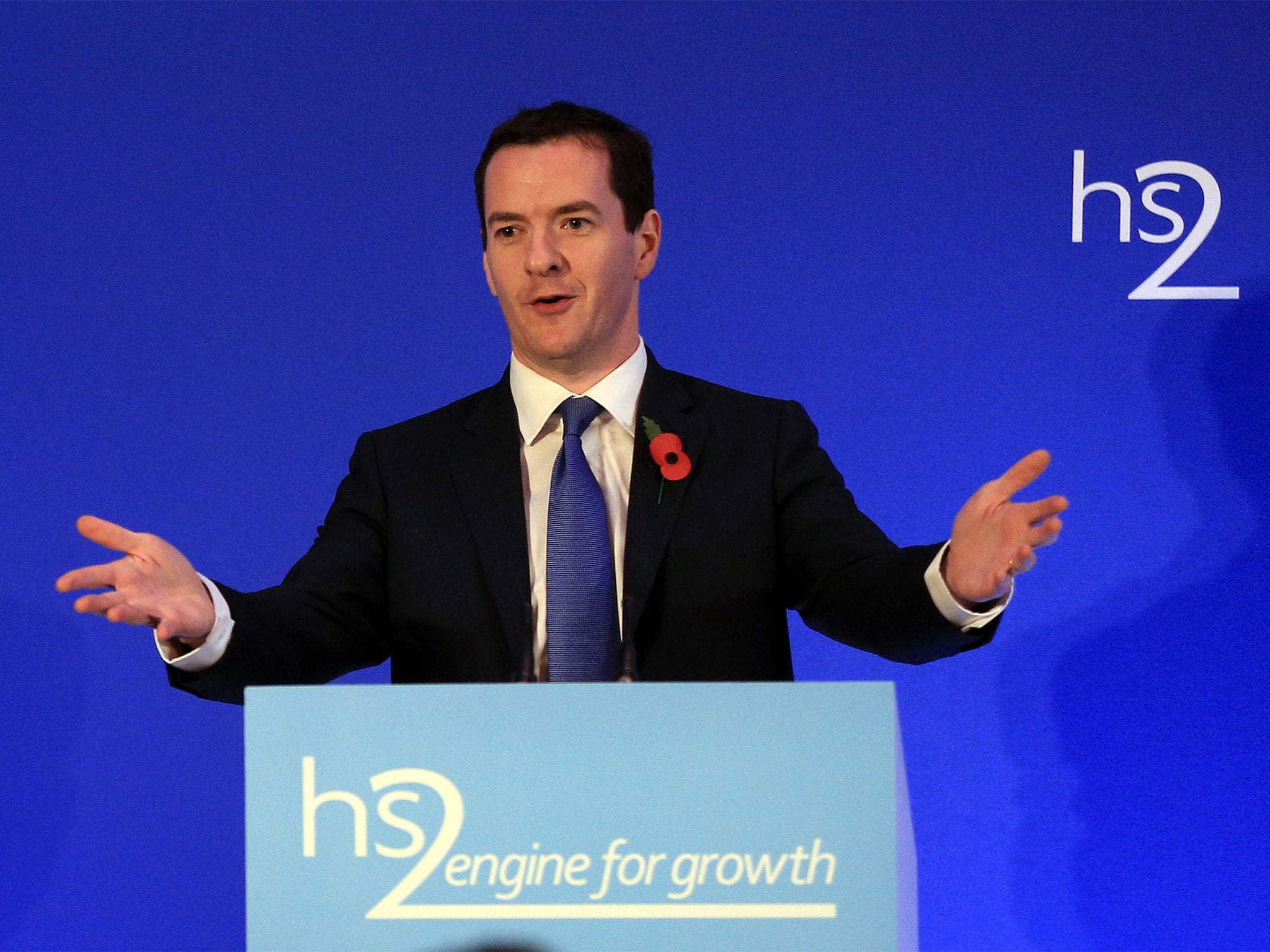NAO attacks Government's over-optimistic HS2 benefit analysis
DfT accused of using unrealistic analysis

Your support helps us to tell the story
This election is still a dead heat, according to most polls. In a fight with such wafer-thin margins, we need reporters on the ground talking to the people Trump and Harris are courting. Your support allows us to keep sending journalists to the story.
The Independent is trusted by 27 million Americans from across the entire political spectrum every month. Unlike many other quality news outlets, we choose not to lock you out of our reporting and analysis with paywalls. But quality journalism must still be paid for.
Help us keep bring these critical stories to light. Your support makes all the difference.
The economic benefits from multi-billion pound investment in high-speed rail have been “unrealistic” and the lessons of over-optimistic Government forecasts need to be incorporated into analysis of big-ticket rail projects, according to a new report from a Whitehall watchdog.
The National Audit Office’s review of five major rail projects backed by the Department of Transport since 2008 highlights lessons which it says need to be applied to current and future rail projects.
The report is critical of the economic claims that were made for the planned high-speed rail links between London and the West Midlands, and the second phase, HS2, which will link Birmingham to Leeds and Manchester.
Last year a report from KPMG claimed HS2 could deliver an annual £15bn boost to the UK economy, and suggested regions outside of the south east and London would be the biggest winners.
Earlier this week David Cameron said he was a “passionate” believer in high-speed rail projects, including the £50bn HS2 and its add-on route across northern England, HS3.
However the NAO questioned the DfT’s original analysis, which claimed that for every £1 invested a benefit of £2.40 would result.
The report says the DfT have now revised that economic optimism and markedly downgraded the boost to only £1.40 per pound. The NAO criticised the DfT, saying: “It does not always recognise the limitations of its analysis nor scrutinise outputs to make sure they make sense.”
It adds that the lack of arithmetic rigour leaves the DfT’s performance evaluations “open to challenge” and that “its decisions have been made using unrealistic analysis”.

Long-term investment in high-speed rail infrastructure is at the heart of the Government’s claims that planning Britain’s future cannot be indefinitely postponed. Construction of the first HS phase is expected to begin in 2017, to be opened in 2026. The second phase, HS2, could start building in the next decade and be opened by 2032, though the scheme’s chairman, Sir David Higgins, said the delivery of the northern section could be accelerated.
However the NAO report questions other assumptions that have been part of the DfT’s thinking. The waste of business travellers' time has repeatedly been cited as a something improved rail times are capable of addressing.
But with rail passengers now routinely working on the train using laptops and tablet computers connected to the internet, the NAO says the DfT has been slow to understand this significant change in commuting and travelling behaviour.
Although the DfT is praised for “making progress” in its management of big rail projects, the NAO says lessons must learned from past errors.
The report states the DfT has now “substantially revised its business case to include new evidence on the value of business travellers’ time, and has a programme of further research to understand how passengers behaviour has changed now that new [computer and internet ] technology is available”.
The NAO says there is also “uncertainty” in Whitehall about how private sector contributions can aid the Treasury in delivering high-cost rail infrastructure projects.
Subscribe to Independent Premium to bookmark this article
Want to bookmark your favourite articles and stories to read or reference later? Start your Independent Premium subscription today.
Join our commenting forum
Join thought-provoking conversations, follow other Independent readers and see their replies
Comments